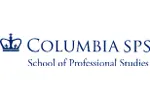“My favorite aspect of the program has to be the small class size and integration of guest speakers – leading voices in the industry, no less – into lectures and discussions.”
We're moving! This site will be relocating to goingto.university in 2026. Please update your bookmarks to the new address.


United States
Visit course webpageConflict resolution skills are essential for forging and stewarding successful relationships between people, communities, and organizations. Columbia University's Master of Science in Negotiation and Conflict Resolution prepares students to analyze the root causes and dynamics of conflict and to transform disputes through reasoned and resourceful interventions. With courses led by some of the world's premier scholar-practitioners in negotiation and conflict resolution, the program focuses on developing self-awareness, tenacity, and interpersonal competency; building common ground; opening lines of communication; ensuring representation and recognition; and building sustainable possibilities for resolution. Flexible program options meet the needs of young and mid-career professionals as well as career-changing professionals.
Learn more about Negotiation and Conflict Resolution, MSc - at Columbia University, School of Professional Studies
Visit course webpageU.S. bachelor's degree or international equivalent - If your post-secondary credentials are from an institution outside the United States, the Office of Admissions requires you to submit all post-secondary credentials (undergraduate and graduate) to World Education Services, Inc. (WES), a third-party verification agency for a course-by-course evaluation for admission consideration. The Office of Admissions will use the credential evaluation provided by WES to determine if your undergraduate degree is the equivalent of a U.S. bachelor's degree.
Students must be comfortable with rapid and idiomatic spoken English - Please review the English language proficiency details under the Application Requirements section to determine if proof of English language proficiency is required. Applicants who are required to provide test scores must submit a current TOEFL iBT or IELTS score report and have a minimum score of 100 on the TOEFL iBT or receive a 7.0 or higher on the IELTS.
Demonstrated ability for critical thinking and analysis.
Find out what students say about Columbia University, School of Professional Studies
Leda S.; M.S. in Sports Management
“My favorite aspect of the program has to be the small class size and integration of guest speakers – leading voices in the industry, no less – into lectures and discussions.”
Jenna Carr; M.S. in Nonprofit Management
“SPS has allowed for a challenging academic experience all while working my full-time job – which has granted me the ability to advance as a professional and student. I look forward to taking the lessons of leadership I’ve learned and applying them in a real-world setting.”
Gloria Chin ’18SPS, Strategic Communication
“One of the best parts of my education at Columbia was my capstone project. The confluence of a real-world experience while applying new learnings in real-time provided new insights with regard to data, persuasive communication, and leadership.”
There are 29 other courses listed from Columbia University, School of Professional Studies. A selection of these are displayed below:
Academic Year Weekend (Fall & Spring) Short Course
Columbia University, School of Professional Studies
Find out moreAmerican Language Program English Language
Columbia University, School of Professional Studies
Find out moreCritical Issues in International Relations Certificate
Columbia University, School of Professional Studies
Find out moreEcology, Evolution, and Environmental Biology Certificate
Columbia University, School of Professional Studies
Find out moreFind out more about studying in United States